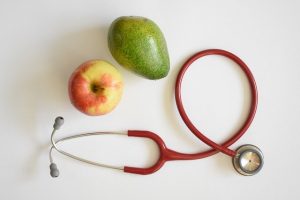
Type 2 diabetes is a true epidemic. An epidemic occurs when new cases of a certain disease, in a given human population, and during a given period, substantially exceed what is expected based on recent experience.
The number of adults in the United States aged 18–79 with newly diagnosed diabetes has more than tripled from 493,000 in 1980 to over 1.5 million in 2011. The number of new cases of diabetes has increased since the early 1990s to 2006. From 2006 to 2019, the number of new cases of diagnosed diabetes has shown no significant change.
What’s the cause
Diabetes is essentially a problem with sugar metabolism. Type 1 is where the body stops producing insulin and if insulin is not provided to the patient they will die. Type 2 diabetes mellitus occurs when the patient’s body cannot handle or process the sugar that they are consuming. Type 2 diabetes goes hand in hand with obesity and diet is the prime reason for both.
Increasing intakes of refined carbohydrate (corn syrup) concomitant with decreasing intakes of fiber paralleled the upward trend in the prevalence of type 2 diabetes observed in the United States during the 20th century*. The old saying “we are what we eat” is absolutely true regarding diabetes. The problem is the confusion of what is the “best” diet.
Once again I get back to common sense. When we consume caloric dense foods – processed foods and animal protein – we gain weight. As weight goes up we have higher incidence of disease and type 2 diabetes is just one of those diseases. Almost 90% of people with type 2 diabetes are overweight. The number of diabetes cases among American adults jumped by a third during the 1990s, and more increases are expected. This rapid increase in diabetes is due to the growing prevalence of obesity and extra weight in the United States population.
What to do
Eating a whole foods plant based diet (WFPBD) has proven benefits for both type 1 and type 2 diabetes. For patients with type 1 there usually a reduction of insulin need. In type 2 patients there is a stabilization of the blood sugars and, if there is a concomitant loss of weight, control of the diabetes can be done with diet alone.
In my practice, patients that moved to the WFPBD have been able to reduce and occasionally stop their diabetic medications. For newly diagnosed type 2 diabetics I strongly suggest they adopt the WFPBD and even if they do not comply 100% I see remarkable improvement of the labs used to measure diabetes.
To learn more, check out the links below!
Neal Barnard, MD, FACC: https://www.pcrm.org/health-topics/diabetes, “Dr. Barnards Program for Reversing Diabetes”, “Diabetes, Tackle Diabetes with a Plant Based Diet”
Courtney Davison, https://www.forksoverknives.com/wellness/vegan-diet-reduces-diabetes-risk-symptoms/#gs.7jsqj5, “How a Vegan Diet Impacts Diabetes”
*Increased consumption of refined carbohydrates and the epidemic of type 2 diabetes in the United States: an ecologic assessment, Lee S Gross, Li Li, Earl S Ford, and Simin Liu, Am J Clin Nutr 2004;79:774–9 (Published in the American Journal of Clinical Nutrition-2004) Learn more here.
